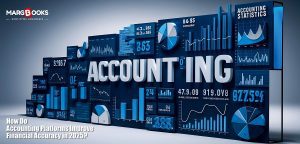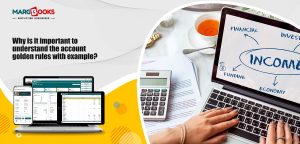Accounting software is a type of application or program designed to manage financial transactions, record-keeping, and reporting for businesses and individuals. It automates and simplifies various accounting functions like bookkeeping, invoicing, payroll, tax filing, and financial analysis, ensuring that financial data is accurate, organized, and up-to-date.
Accounting software can range from basic tools suitable for small businesses or personal use to complex systems designed for large corporations. It can be installed locally on computers or used via cloud-based accounting software.
Features of Accounting Software:
- General Ledger:
- Centralized place where all accounting transactions are recorded.
- Allows for double-entry bookkeeping, ensuring accurate financial reporting.
- Accounts Payable & Receivable:
- Tracks bills, invoices, and payments owed to and by the business.
- Helps ensure timely payments and collections, managing cash flow effectively.
- Invoicing & Billing:
- Generate professional invoices with automatic reminders for due payments.
- Integration with accounts payable/receivable for seamless tracking.
- Bank Reconciliation:
- Automatically compares and reconciles bank transactions with accounting records.
- Ensures accuracy and consistency between your bank account and the general ledger.
- Payroll Management:
- Calculates employee wages, deductions, and taxes, and generates payslips.
- Ensures tax compliance by calculating appropriate deductions (e.g., social security, income tax).
- Financial Reporting:
- Provides a variety of reports such as income statements, balance sheets, cash flow statements, and profit & loss statements.
- Allows real-time analysis of the company’s financial health.
- Tax Management:
- Helps calculate and track taxes (e.g., sales tax, VAT, and corporate tax).
- Ensures compliance with tax laws by generating necessary tax reports.
- Inventory Management:
- Tracks and manages stock levels, purchases, and sales of goods.
- Automates stock valuation and generates reports on stock levels and turnover.
- Audit Trail:
- Logs all financial transactions and any changes made to the data for review and verification.
- Provides transparency and supports internal or external audits.
- Multi-currency Support:
- Allows businesses to handle transactions in multiple currencies, useful for international trade.
- Automatically updates exchange rates.
- User Access Control:
- Manages user permissions and access to sensitive financial data.
- Ensures that only authorized personnel can perform certain actions or view confidential information.
- Cloud-based Features (for cloud software):
- Access from anywhere with internet connectivity.
- Automatic software updates and data backups.

Benefits of Accounting Software:
- Time-Saving:
- Automates repetitive tasks like invoicing, payroll, and transaction recording, saving valuable time and reducing human error.
- Instant generation of financial reports and real-time updates makes tracking financial performance much faster.
- Accuracy:
- Reduces human error by automating calculations and ensuring that data is entered correctly.
- The software follows predefined rules to ensure the consistency and accuracy of financial data.
- Better Financial Management:
- Helps businesses stay on top of their financial status by providing real-time insights into cash flow, revenue, and expenses.
- Offers tools for managing budgets, forecasting future trends, and ensuring proper allocation of funds.
- Compliance:
- Ensures compliance with tax laws and regulations by automatically updating for changes in tax rates and legislation.
- Simplifies tax filing by generating accurate tax reports.
- Cost-Effective:
- Reduces the need for manual labor or outsourcing tasks, such as bookkeeping or payroll.
- Many small and medium-sized businesses can access affordable accounting software with essential features.
- Security:
- Offers robust security features to protect sensitive financial data from unauthorized access or breaches.
- Cloud-based accounting solutions often come with encrypted backups, adding an extra layer of protection.
- Scalability:
- As your business grows, accounting software can scale to meet new demands, such as handling more transactions, multi-currency support, or more advanced reporting features.
- Many software options offer modular pricing, allowing businesses to add features as needed.
- Improved Decision Making:
- With access to real-time data and detailed financial reports, business owners and managers can make more informed and data-driven decisions.
- Helps in identifying cost-saving opportunities, areas of improvement, and growth strategies.
- Collaboration:
- Cloud-based software enables collaboration between team members, accountants, and financial advisors.
- Multiple users can access and update data simultaneously, improving communication and productivity.
- Ease of Use:
- Many accounting software options are designed with user-friendly interfaces, allowing non-accountants to use them with minimal training.
- Intuitive dashboards and guides make it easier for users to understand and manage their financials.
Conclusion:
Online Accounting software simplifies complex financial tasks, making it easier for businesses to manage their finances and ensure compliance. It improves efficiency, accuracy, and decision-making, while also reducing costs and time spent on manual accounting processes. With the right features and proper implementation, accounting software is a valuable tool for businesses of all sizes.




